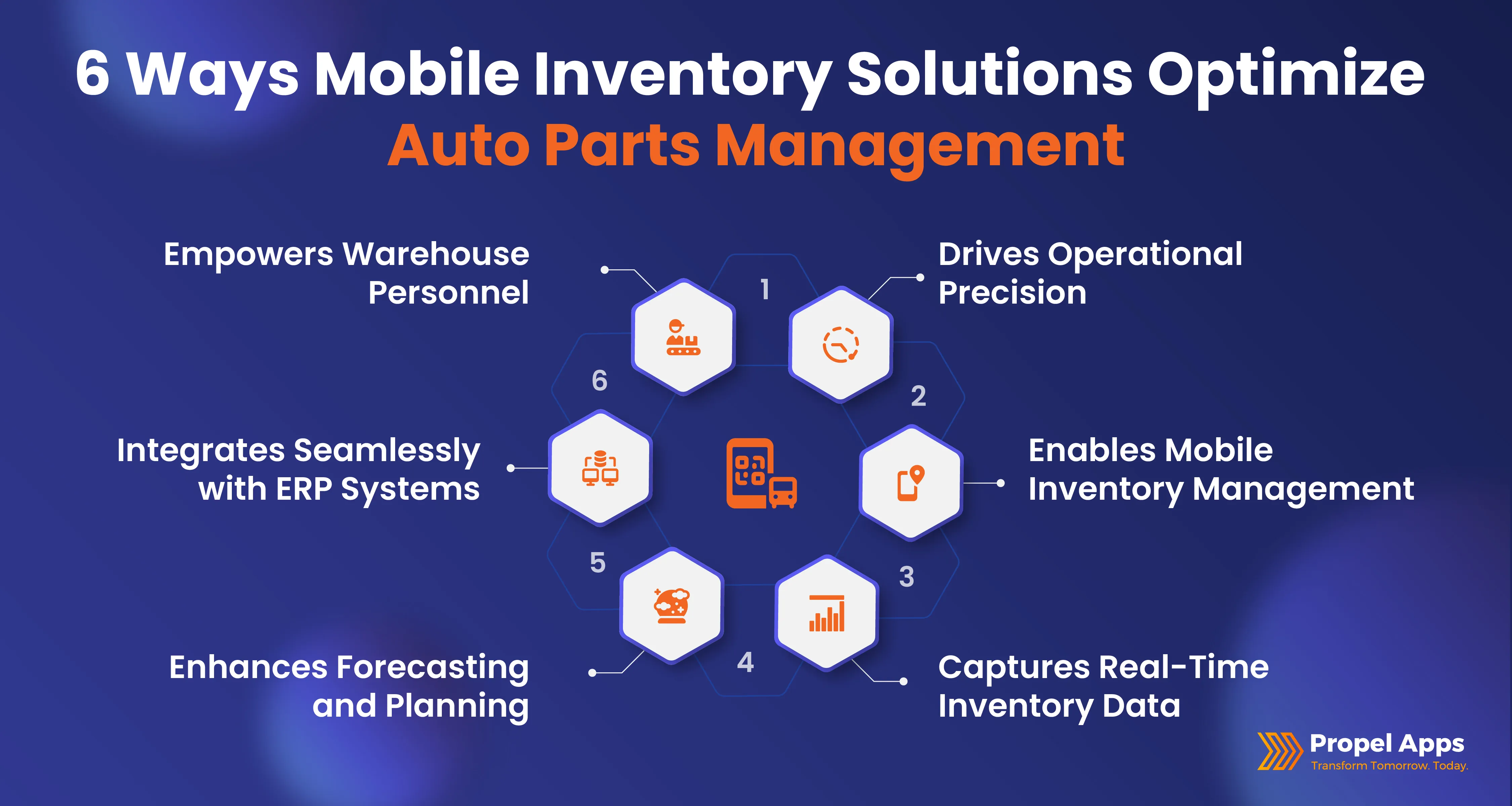
Efficient inventory management is vital in the fast-paced automotive industry to stay competitive and meet customer demands. The introduction of Enterprise Resource Planning (ERP) software enables businesses to utilize real-time data insights for optimizing their auto parts inventory.

This blog will examine the automotive industry landscape, address the challenges involved, and highlight the crucial role of mobile inventory management solutions in leveraging ERP data for optimized auto parts inventory.
The automotive industry is characterized by its complex supply chains, diverse product offerings, and stringent quality standards. From original equipment manufacturers (OEMs) to aftermarket retailers, every player in the industry faces unique inventory management challenges. With a multitude of parts, suppliers, and distribution channels, maintaining accurate inventory levels while minimizing stockouts and overstock situations is a constant struggle.
Auto parts inventory management presents a unique set of challenges due to the complexity and scale of the automotive industry. Below are the main difficulties faced:
Effectively addressing these challenges requires investment in advanced inventory management systems, improved forecasting techniques, and strong supplier relationships to ensure a responsive and resilient supply chain.

In the dynamic and complex realm of the automotive industry, maintaining a competitive edge necessitates more than mere innovation—it mandates accuracy, adaptability, and data-driven strategies. This is precisely where automotive ERP software (Oracle or SAP), empowered by the revolutionary capabilities of real-time data, emerges as a pivotal force driving industrial progress.
Organizations in the automotive industry are increasingly turning to mobile inventory management solutions integrated with ERP systems to address these challenges effectively. In other words, a mobile inventory management solution that integrates with an organization's backend ERP system works wonders, empowering its workforce to go digital, letting them process transactions, anytime, anywhere.
These solutions empower organizations to capture real-time inventory data directly from the warehouse floor using mobile devices such as smartphones or tablets. By scanning barcodes or RFID tags, employees can update inventory levels instantaneously, ensuring accuracy and visibility across the supply chain.
Moreover, mobile inventory management solutions offer features such as predictive analytics and demand forecasting, enabling organizations to anticipate inventory needs proactively. With access to real-time data insights, businesses can optimize procurement decisions, identify slow-moving inventory, and implement just-in-time inventory strategies to minimize carrying costs and maximize profitability.
In the above context, look for a cost-effective, yet cutting-edge solution that is intuitive, user-friendly, and easily integrates with your backend ERP system such as Oracle EBS, Oracle SCM Cloud or SAP S/4 HANA. To achieve this objective, explore Propel Apps’ mobile supply chain management solution that lets your inventory and warehouse personnel easily access the ERP data on the go.
In other words, this solution empowers material handlers to access real-time data from the ERP system, perform simple tasks and get work done without lengthy manuals or a ton of support from either business or IT. To know how this solution can optimize your auto parts inventory and help foster an effective supply chain eco-system, schedule a free demo with us.
Harnessing ERP data for optimized auto parts inventory is essential for businesses looking to thrive in the competitive automotive industry. By leveraging mobile inventory management solutions integrated with ERP systems, organizations can gain real-time insights into their inventory levels, streamline operations, and respond swiftly to changing market dynamics. As technology continues to evolve, embracing innovative solutions will be the key to staying ahead of the curve and achieving sustainable growth in the auto parts sector.